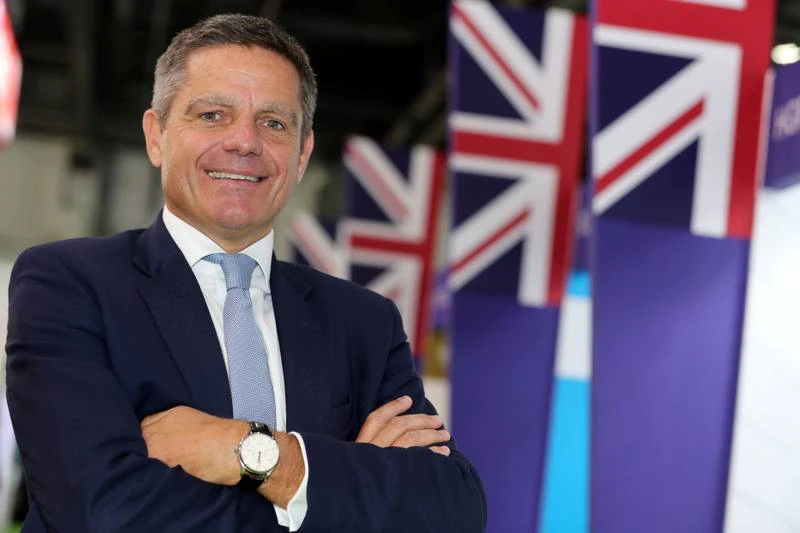Free trade deal 'will help UK remain among GCC’s major trade partners'
06 January, 2022

A free trade agreement between the GCC and UK will boost bilateral trade and consolidate Britain's position as the bloc’s third-largest export market globally in the post-Brexit era, the UK trade commissioner for the Middle East and consul general in Dubai said.
“The FTA will help us grow that number further, but it will also help us protect that number … it would help us protect our market share. One thing you would have seen over the last decade or so is the competitive landscape [for trade],” Simon Penney told The National in an interview.
“It’s about protecting market share, and then growing market share. So it really is important for us that if we don't have a free trade agreement in place … the competitive landscape is such that … many other countries may get our market share.”
Bilateral trade between the GCC and the UK was worth more than £30 billion ($40.88bn) in 2020 alone, while British exports amounted to £22bn, according to figures provided by the government. China and the EU are the first and second biggest trade partners of the GCC, accounting for 15.8 per cent and 12.3 per cent, respectively, of the GCC’s total trade in goods in 2020, according to the European Commission.
Officials from the GCC and UK agreed to work rapidly towards a comprehensive FTA in December last year as both parties seek to cement their trading relationship and capitalise on synergies following Britain's exit from the EU.
Following a day-long meeting with British Foreign Secretary Liz Truss at her 17th-century grace-and-favour mansion, Chevening House in Kent, foreign ministers from the GCC and Ms Truss said the “re-energised UK-GCC partnership” would generate significant business opportunities.
“I want us to have much deeper links in key areas like trade, investment, development and cyber security with a part of the world that is important to Britain’s long-term interests,” Ms Truss said at the time.
The formal process for an FTA will start after a continuing consultation period ends in January. Discussion with the bloc’s six countries is expected to begin shortly after, according to officials.
UK businesses can also contribute to the consultation process through the British government’s website by providing their input, Mr Penney said.
“This consultation is an opportunity for companies to formally put down the frustrations and the barriers that they might experience when doing business and [will] allow us to help seek to address those joining with the GCC.”
While the UK will be seeking to increase its exports to the Gulf, the FTA could also lead to the reverse with Britain being a major market for exports from the GCC, Mr Penney said.
“As the Gulf countries expand their domestic economies and diversify their economies, they will be looking for export markets. We want the UK to be a beneficiary of UAE and Gulf exports,” he said.
An FTA, Mr Penney said, will align the UK and the Gulf in terms of regulations and procedures, paving way for companies in the region to “do business competitively in the UK”.
Being an independent trading nation now means we can pick the partners that we want to deepen our relationships.
-Simon Penney
Britain, which officially exited the EU this year, is aiming to build an independent relationship with other countries in a bid to boost trade and investment outside Europe.
Although among the top trading partners of the GCC, the EU has been unable to iron out an FTA with the region. Discussions faltered in 2010 over issues such as export tariffs that the Gulf countries wanted to retain the right to impose. EU officials said at the time that this would hurt small European manufacturers.
Although the EU and the Gulf tentatively resumed talks about an FTA last year, progress has been slow.
“Being an independent trading nation now means we can pick the partners that we want to deepen our relationships,” Mr Penney said.
“As an independent trading nation [we can] put in place … a global network of next generation free trade deals. So it gives us the freedom, the latitude and the ability to unilaterally take control of our future trading relationship.”
Following Brexit, the UK has been negotiating FTAs with Australia, New Zealand, the US and Singapore. In addition to the GCC, it is also preparing to begin negotiations to sign FTAs with Canada, Mexico and India.
“The Indo Pacific [region] is one such area where a lot of the growth is going to come from,” Mr Penney said.
Source: www.thenationalnews.com
